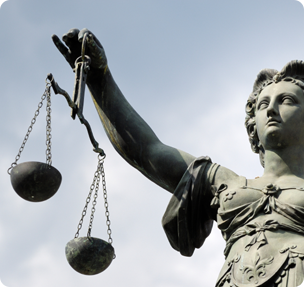More Than 30 Years of Successful Trial Experience.
Fighting For Your Constitutional Rights
An arrest on serious white collar charges such as money laundering or fraud calls for aggressive defense representation by an experienced criminal attorney with a track record of success — someone who will fight for your constitutional rights.
The Law Offices of Walter A. Reynoso provides the aggressive advocacy that you need in the Greater Miami area, Broward County, Palm Beach County, throughout Florida, nationally, and internationally. The law firm is comprised of attorneys Walter A. Reynoso and Kristen A. Reynoso. We have handled a variety of cases, including white collar defense, money laundering, embezzlement and fraud, and have helped many clients under federal or grand jury investigation to avoid criminal charges.

2014 and 2015 Top Lawyers of South Florida

2002-2012 Martindale Hubbell Highest Peer Review Rating

2011 Newsweek Top Attorneys in the Country

2014 Top Law Firms South Florida Legal Guide

Walter has been a commentator on CNN.

Protecting Your Reputation And Professional License
Our criminal defense law firm has represented a wide variety of high-profile clients in complex criminal matters at both the investigatory and trial level, including:
- Professional athletes
- Doctors
- Lawyers
- Bankers
- Executives and government officials.
Providing Thorough Preparation And Zealous Advocacy
You can expect prompt, in-depth examination of all evidence, skillful negotiation with prosecutors and forceful arguments at trial on your behalf in federal and state court. Our office has successfully represented others in similar circumstances to those you may be facing. You owe it to yourself and your family to hire an experienced criminal defense attorney. Contact The Law Offices of Walter A. Reynoso, P.A., today to schedule your initial consultation. Call 305-441-8881 or send an email message. Hablamos su idioma.

In Our Clients’ Words
Very few law firms in our territory have the versatility to provide legal guidance in the Spanish language. At The Law Offices of Walter A. Reynoso, P.A., whether you are a foreign national with a cross-border issue or a longtime Miami resident facing serious punishments for a financial crime, we will zealously defend your constitutional rights. Hablamos su idioma.
Over 30 Years Of Experience Protecting Clients’ Rights Nationally And Internationally
Walter A. Reynoso has protected the rights of clients throughout South Florida, nationally and internationally for more than 30 years. Our firm will thoroughly investigate whether law enforcement overstepped its boundaries during the process, including whether you were a victim of illegal search and seizure, a warrantless search, or a coerced confession. Along the way, you will receive attentive personal service, honest answers to your questions, openness to your ideas when defense strategies are formulated, and regular updates on the status of your case.


Walter A. Reynoso Esq.





